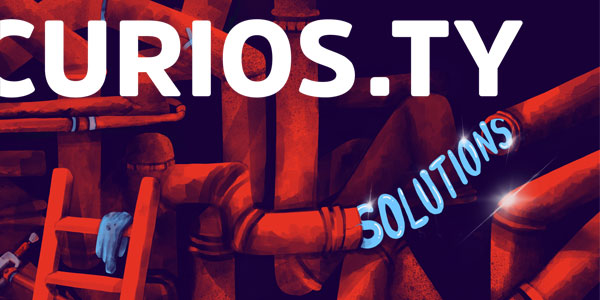Finding solutions to complex challenges. For Good.
- Professor Zeblon Vilakazi
This article has been published in the print and online edition of the Daily Maverick.
We inhabit a global context characterised more sharply than ever before by unpredictability, the proliferation of risk, the emergence of complex problems, and the unreliability of social institutions to regulate our world sufficiently. We can predict the future challenges of the 21st Century, and we know that they will be immense.

It’s been more than a year since the Covid-19 pandemic irrevocably changed the way we live, work, engage, and teach. Amidst this new reality, structural, political and socioeconomic challenges persist in South Africa – loadshedding remains a way of life, infrastructural deterioration threatens development, we are plagued by crime and violence, inequality and poverty malign the most vulnerable in society, climate change is wreaking havoc in many countries, and Covid-19 threatens the public health sector and people’s employment, prospects, and wellbeing.
Yet the current zeitgeist also presents opportunities, and the time is now ripe to galvanise our collective strengths towards addressing complex challenges, and to find long-lasting solutions that will benefit generations to come.
Research-intensive universities play a key role in generating, sharing and disseminating the knowledge required to drive global change, competitiveness and economic growth. But our universities must also serve as the catalyst for promoting the capacity for innovation in society. This needs to be reflected in the conceptual agility of our graduates, the acuity of insights arising from our research, and very importantly, in the novel ways in which the resources of the University are brought to bear on the compelling challenges of the era.
It is at our universities, for example, that we should interrogate the infrastructural frustrations around energy, water, roads, hospitals, schools and buildings and – importantly – present research-based solutions of how to overcome these issues. Intermittent electricity and water supply, potholes in the roads, lengthy waits at hospitals, sewage in rivers, weeds along railway tracks, access to universal healthcare – based on research, what are the practical steps that should be taken immediately to change policy, and to kick-start action?
Vulnerable South Africans are adversely affected by and through the economic reality in which they find themselves, often a sobering indictment of the complicated interplay of politics, economics and people in power. Yet, the ructions caused by the pandemic provide us with an opportunity to hit the reset button, to reconsider our core values and spending priorities, and to address South Africa’s social ills whilst conferring dignity. We need solutions backed by research to drive life-affirming and empowering policies.
I am encouraged every day by the world-class research and innovation emanating from South Africa – whether it is the photographing of black holes in outer space, the identification of COVID-19 variants, the devising of biomedical engineering devices to enable people to live a better quality of life, reimagining the way vaccines and lifesaving drugs can be delivered in future, or thinking deeply about how our brains can solve problems.
As a major player in higher education in Africa (and, increasingly, globally), South Africa would be remiss not to continue interrogating the role and relevance of research-intensive universities in the country and on the continent. How can higher education, teaching and learning, research and innovation, remain relevant and advance the public good? We are at a point where we need to consider the kind of society that we want to create, based on research and the new knowledge architectures developed in the Global South.
For almost 100 years, Wits has played a vital role in shaping our city and nation by addressing current challenges and innovating for our future. We must leverage this past and our location to develop Wits as one of the leading research, innovation and solutions hubs in Africa. We need to nurture the next generation of scholars and develop a talent pipeline par excellence. We must channel our knowledge and scholarship into innovative technologies, to find solutions, and use it to influence policy. Above all, we must ensure that it advances the public good.
Universities often flourish in flux and it is now time for research-intensive universities like Wits to catapult into a new realm, to step up and to collaborate with strategic partners across the public and private sectors, the academy and civil society, to develop solutions based on excellent research from the Global South, for the good of humanity.
Professor Zeblon Vilakazi is the Vice-Chancellor and Principal of the University of the Witwatersrand. Read more at www.wits.ac.za/curiosity/. This article was first published in Daily Maverick/Business Maverick.

